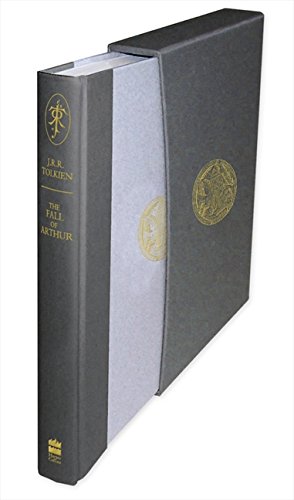It is really hard to call this a typo when it survived multiple edit passes by Tolkien while he was still around doing those. In fact, I would lean toward any editions that don't have the double exclamation mark as being incorrect, just based on that. I don't have any first-hand information, though. A good candidate for someone to go through Anduril system at Marquette and see how it looks in Tolkien's various drafts and proof corrected sheets!
Yes, the proofs would provide the best answer, or a check copy, if Marquette has one.
The third edition paperbacks (Unwin Books and Longmans) and the fourth edition hardcovers and paperbacks (the 50th Anniversary was a fourth edition text) have the single exclamation point.
The first and second and third edition hardcovers—those which Tolkien gave close reading—all have the double points, spaced.
All the fifth edition editions (1995 to present) have the double points spaced, except for the Ballantine, which has them unspaced—it's been that way in their text since 1965.
The third edition paperbacks (Unwin Books and Longmans) and the fourth edition hardcovers and paperbacks (the 50th Anniversary was a fourth edition text) have the single exclamation point.
The first and second and third edition hardcovers—those which Tolkien gave close reading—all have the double points, spaced.
All the fifth edition editions (1995 to present) have the double points spaced, except for the Ballantine, which has them unspaced—it's been that way in their text since 1965.
This is truly fascinating to me, that there could actually be a reason Tolkien wanted it that way, and now I WANT TO KNOW
My understanding is Annotated Hobbit (1988) restored the standard text to the earlier states, in the process abandoning most editorial changes in later editions. Sometimes text in the 70s/80s would appear to make more sense (after all that's why the editors changed them on their own), such as this case, and the standardization of realize/realise. But it is often hard to be sure which one is Tolkien's intention.
Yes, I recall Anderson writes (somewhere) that the idea was to return the text to the state it was in during Tolkien's lifetime, rejecting later emendations. An exception may be that first moon/last moon change, as I recall.
James Tauber from digitaltolkien (https://search.digitaltolkien.com/?terms=) checked for other uses like this in The Hobbit and found this
The Hobbit: The Classic Bestselling Fantasy Novel . HarperCollins Publishers. Kindle Edition.
So the spaces between the exclamation mark are not a mistake, just how they were done in the 1930's.
I think it would be correct today to remove the spaces, but leaving them is fine as well.
Whatever am I going to do? I might have known that something dreadful would happen to me in the end. I don’t think I could bear to see the unhappy valley of Dale again, and as for that steaming gate! ! !”
The Hobbit: The Classic Bestselling Fantasy Novel . HarperCollins Publishers. Kindle Edition.
So the spaces between the exclamation mark are not a mistake, just how they were done in the 1930's.
I think it would be correct today to remove the spaces, but leaving them is fine as well.















 0
0 41
41